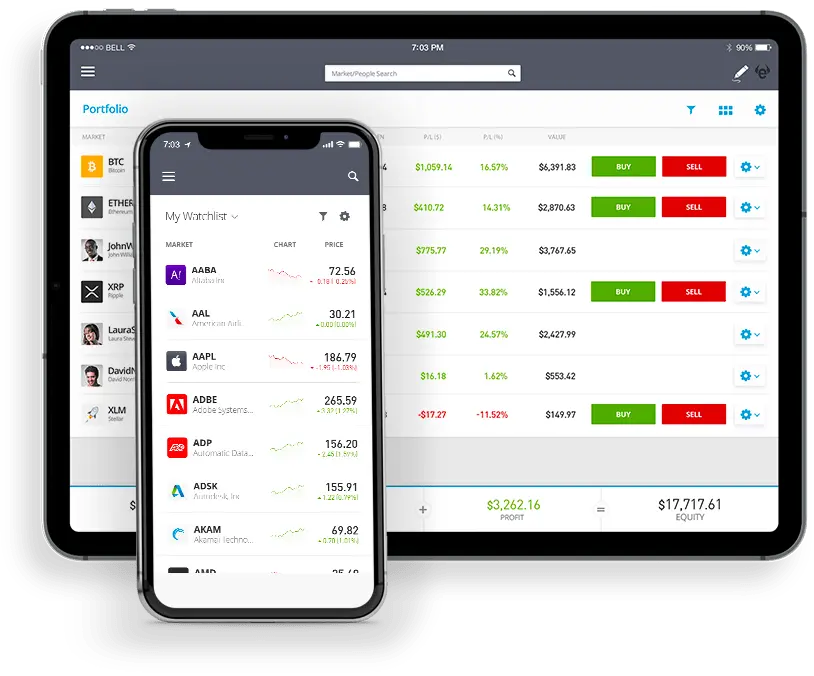
Yes, when you buy non-leveraged stocks on eToro in the UK, you own the underlying asset. These stocks are purchased in your name and held in a segregated omnibus account. However, it's important to note that this ownership does not extend to CFD trading, where you do not own the actual stock.
61% of retail investor accounts lose money when trading CFDs with this provider. You should consider whether you can afford to take the high risk of losing your money.
Navigating the world of digital investment, especially in terms of stock ownership, can be complex and nuanced. Through my active engagement with this trading platform via my eToro UK account, I have acquired a deep understanding of these intricacies. This article is designed to demystify the concept of share ownership for users of eToro in the UK, drawing from both the platform's guidelines and my personal experience in the digital trading arena.
The platform offers two primary ways to engage with stocks:
When you opt for a non-leveraged BUY position on a stock, you're investing in the underlying asset, with the stock purchased in your name. This is in contrast to CFD trading, where actual stock ownership is not conferred. Understanding this distinction is crucial for aligning investment strategies with financial goals.
A key feature here is the commission-free policy on real asset investments. This means no markups, ticket fees, or management fees when investing in the underlying asset. For UK investors, this approach is attractive, offering a way to maximize returns without incurring additional costs.
When you buy stocks as real assets, they are held on your behalf in a segregated omnibus account. This means you own the stocks, but they are maintained in a collective account. For US stocks, clients have allocated voting rights, an important aspect of ownership. Understanding these nuances is vital for UK investors to appreciate the extent of their rights.
It's important to be aware of certain limitations. For instance, transferring open stock positions to another broker or individual is not possible. However, closing positions and withdrawing funds is straightforward. This limitation should be considered in long-term investment planning.
And that's the rundown. Navigating stock ownership on this platform requires understanding the differences between real asset investments and CFD trading.
I hope that sharing my experience has highlighted the importance of these distinctions and the specific policies of the platform. This knowledge is essential for UK residents looking to engage in stock trading, ensuring informed and effective investment strategies.
eToro is a multi-asset platform which offers both investing in stocks and cryptoassets, as well as trading CFDs.
Please note that CFDs are complex instruments and come with a high risk of losing money rapidly due to leverage. 61% of retail investor accounts lose money when trading CFDs with this provider. You should consider whether you understand how CFDs work, and whether you can afford to take the high risk of losing your money.
This communication is intended for information and educational purposes only and should not be considered investment advice or investment recommendation. Past performance is not an indication of future results.
Copy Trading does not amount to investment advice. The value of your investments may go up or down. Your capital is at risk.
Don’t invest unless you’re prepared to lose all the money you invest. This is a high-risk investment and you should not expect to be protected if something goes wrong. Take 2 mins to learn more.
Crypto investments are risky and may not suit retail investors; you could lose your entire investment. Understand the risks here https://etoro.tw/3PI44nZ.
eToro USA LLC does not offer CFDs and makes no representation and assumes no liability as to the accuracy or completeness of the content of this publication, which has been prepared by our partner utilizing publicly available non-entity specific information about eToro.
 About Mike Druttman
About Mike Druttman